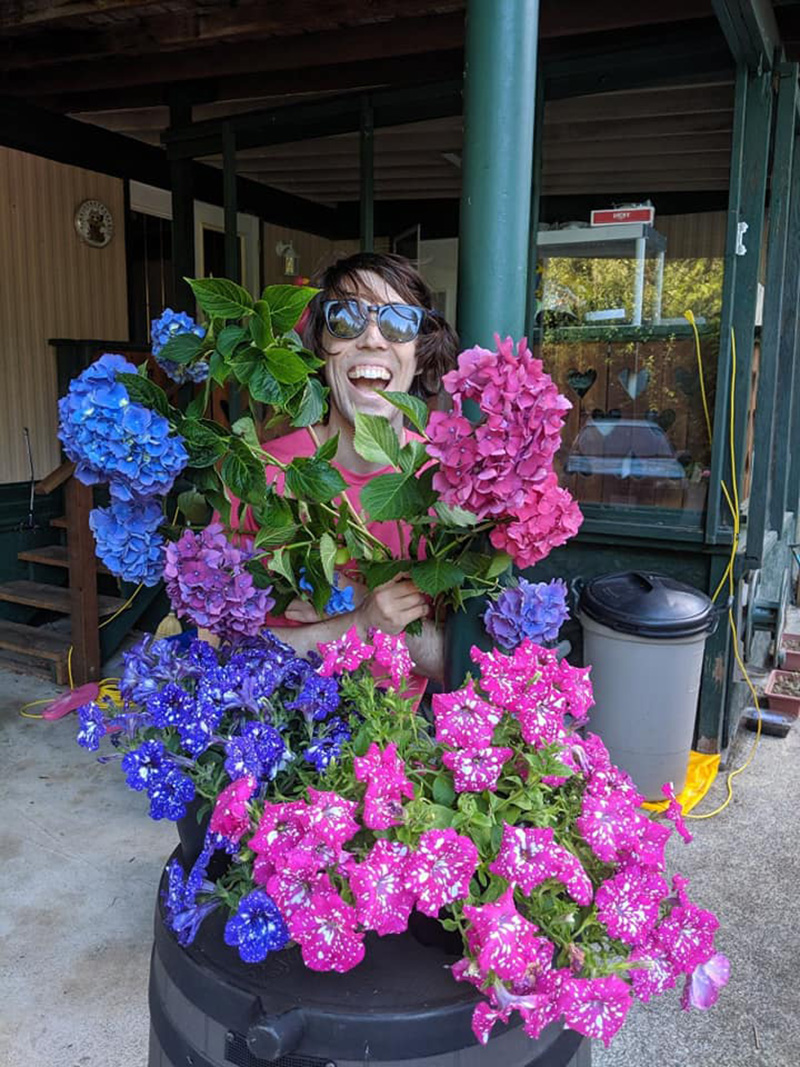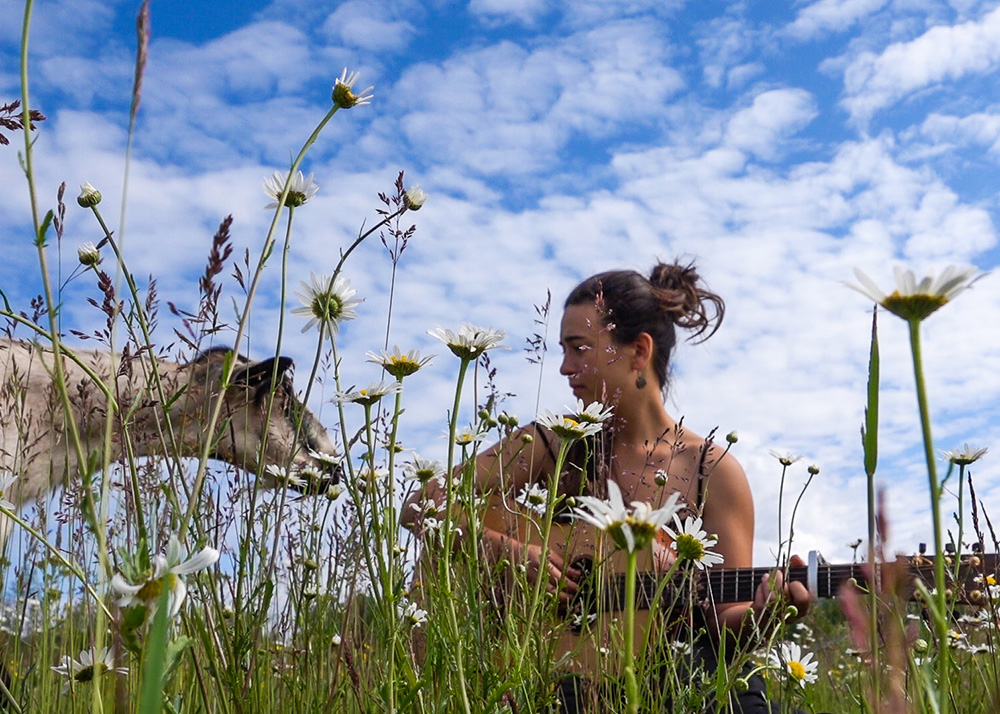It’s a common refrain in troubled times: “I wish I could just flee to the countryside and take refuge from this bananas world.” And indeed, those of us who live in Canada’s urban centres such as Vancouver and Toronto know a number of people who’ve done just that.
According to recent interprovincial migration numbers from Statistics Canada, young people are abandoning Canada’s larger cities for different parts of their province at an accelerating rate, especially in British Columbia. In the span of five years, the Lower Mainland lost over 18,000 people to other parts of B.C., 180 per cent more than the previous period.
Things like unaffordability and the pace of life pushed them to seek out smaller or slower cities and towns. Recently, we wondered: how’s it all working out for them? Would they do it again? And what advice would they offer those who’re also thinking about ditching the big city lifestyle?
So we checked in with some young “fleers” to see how their decision unfolded. We’ve transcribed their stories below.
ADRIANA VIRTUE ‘You can be busier than you ever thought by leaving the city for a small town.’
I grew up in small towns as a child before my mom took a job in Edmonton as I entered high school. In my early 20s I moved to Vancouver with my boyfriend (now husband) to fill a management position. We also worked and moved a small business together, one his mom had been running for more than 20 years at farmers markets in Alberta. We ran that as a “side-hustle” on the West Coast while doing a small-scale farming internship in Richmond and both still working full-time jobs. When we realized we wanted to take advantage of the money from our full-time work, we set out to find property and acquire a mortgage. Nothing was affordable for us on the Island or near Vancouver, which lead us to consider small islands and the Sunshine Coast.
Eventually we settled in Powell River, two ferry rides from Vancouver. We’ve now been here for four years and it’s been great, with ups and downs. We decided to shut down the “side-hustle” business — there comes a point when you have to take it on for real, full time, commit and scale up, or make the decision to keep it real small or end it. We decided we didn’t want to put ourselves completely into the industry or make a “side-hustle” life of it — plus we didn’t actually buy a property that allowed for or fit the business’s needs.
It wasn’t hard to leave the city! It was exciting. Looking back we sometimes feel like we’ve maybe lost some friendships and fun times with those we were getting to know and were close to before we left — plus your mid-20s are kind of a weird time to leave the city. It’s really beautiful here though, and we have family moving here very soon so we don’t see ourselves leaving right away, but we’re open to it. Now that we’re in “the market” there’s the possibility of scaling up our place from a property, which doesn’t have opportunities for farming and business, to one that does. I would live in a city again, but I’m in no rush. Going for a visit every once in a while is great — two ferries is a proper trip!
I like the nature and calm pace that I feel forced into here more than the pace of the city. Having a career path in mind with your move is a nice idea. Finding a place where the work you’re interested in exists or is needed will definitely take the pressure off. You can be busier than you ever thought by leaving the city for a small town, because you’re trying all sorts of things to make the money to pay the bills. Make sure you research the type of life that exists in the city before you move or you might be surprised, or not enjoy it. With all the flee-ers, these small cities are changing as fast as everything else, so there’s some great opportunities to start things up and be a part of that. If that’s not you, you can always go full hermit and get your good pals to come visit when you feel lonely.
TREVOR COOPER ‘Having to listen to $500,000 sports cars rev their engines along Robson Street, or regularly walking past the Trump tower felt demoralizing.’

I’m from Nanaimo, B.C., where I lived in the same house from age one to 27. In 2015, I finally moved out of my parents’ attic to live in Vancouver. I lived there for over four years. This past April I moved back to Nanaimo, bringing my partner Frances with me. Frances has lived in big cities her whole life, so the move was an adjustment for her. The comparative prices of real estate, among other things, brought me back to Nanaimo. Selling our single two-bedroom condo in Vancouver allowed us to buy two houses with plenty of yard space. We now have a place to do our creative projects (we’re both artsy types) and garden, while having some passive income from renting. We’ll also do some part-time remote work to supplement the rental income.
So far we like it. As someone with a chronic illness, I never expected to own a home, let alone have a rental property, which gives me a lot more opportunities to live comfortably even when my health inexorably worsens.
It wasn’t very hard to leave. When I first moved to Vancouver I really needed to experience the eclectic flavours of the city’s restaurants and markets, as well as the diversity of people and opportunities only a larger urban centre can offer. Once the novelty wore off, the day-to-day buzz of the street held less appeal. It also felt like a different set of priorities were at play in Vancouver. Having to listen to $500,000 sports cars rev their engines along Robson Street, or regularly walking past the Trump tower felt demoralizing. The city seemed keen on letting developers buy giant bridge chandeliers rather than making substantive progress for people struggling at the margins.
Coming back to Nanaimo, even though it’s not without its own difficulties, felt like being able to breathe again. I never adjusted to the pace and values of Vancouver. I feel less on edge here in my hometown. I feel freer to casually converse with people, even though I met some amazing people in Vancouver. The hardest part of leaving was knowing how much harder it would be to stay connected to people across the strait. Frances and I don’t have plans to move back to a bigger city in the near future. We’ve begun planting some trees, and in the spring we hope to build some raised garden beds for vegetables. Instead, we have plenty of plans for get-togethers to lure friends out to visit us. Maybe they’ll wind up enjoying the smaller community as much as we do!
JOSHUA BURROWS ‘The sounds of crickets and frogs at night and the smells of wood stoves burning in the winter are a stark contrast to my previous life.’
I grew up in the Edmonton area and now live in Pemberton, B.C. I’m a carpenter by trade. Before moving, my employer, and the construction industry, had been slowing down, so I figured it was a good time to make the move I’d been pondering for a while. I was attracted to Pemberton because of its proximity to the mountains. Growing up skiing and biking and staying informed with mountain culture, I knew it as a hardcore sporting town, which interested me. After living in a large metropolitan area for my entire life, I grew tired of the hustle and bustle of city living; the constant noise, bright lights, and sitting in traffic caused stress and unhappiness in my life. I often found myself leaving on weekends to find wilder places, driving at least five hours one way to do outdoor activities and connect with nature in ways that weren’t possible in Edmonton. Travelling that much was expensive and tiring, so riding my bike or cross country skiing in the city’s river valley would often have to suffice.
Since moving to Pemberton over a year and a half ago, I’ve come to enjoy the simple rhythm of a small town. The sounds of crickets and frogs at night and the smells of wood stoves burning in the winter are a stark contrast to my previous life. I love that everything I need or want to do is just steps from my door. Sometimes I grab my bike from the garage and hit the trails for the entire day (to burn off the coffee and pastries from the delicious local Blackbird Bakery). Being only a few minutes from work allows more free time to do the activities I love that keep me healthy.
Although I have no regrets moving here, I could see the decision to move to a small town being difficult for some young people. For one, housing can still be scarce and expensive, as is the case in Pemberton. I was lucky enough to find a room in a condo complex on Craigslist that was suitable. Certain employment opportunities can also be difficult to find. I think it’s clear that residential housing projects in the Sea-to-Sky Corridor are booming, which is great for mine and other trades in the construction industry. I was lucky enough to have a carpenter position lined up with a local company before moving here. Having moved here not knowing anyone in town, I’ve since become good friends with all my neighbours and regularly socialize and adventure with them. At this point, I can see myself living in this area for a long time.
KESIA NAGATA ‘My body is sore from hard work and my heart and belly are full of the good stuff.’
I grew up in East Vancouver and had been slowly making my way out — living and working on farms and ranches in the Lower Mainland and the Cariboo, as well as my grandfather’s home on Mayne Island — by the time we figured out how to get here. I now live on one of the traditional territories of Wilp Delgamuukw, in what is known as the Kispiox Valley, north of the town of Hazelton, B.C.; all of this is on Gitxsan Territory. I live with my husband and near to my mother, and together we care for an eccentric little homestead under regenerative principles.
I think I’ve always wanted out of the city. I was never comfortable there and yearned to be in quieter, wilder spaces. I wanted to be close to my own food, and for my daily activities to have some tangible impact on my physical life. When my parents and brother expressed interest in making a consolidated effort to relocate, we had a chance to work together and share resources to fulfill these hopes and dreams. “We burned the boats!” as my mother says. Moving 1,200 kilometres away from Vancouver felt like a giant leap, but still not far enough from a life I was ready to leave behind.
We arrived here in the summer of 2016, and we hope more of our family can eventually join us. We came here on little more than a feeling, and now I don’t think I could have dreamt up a place or a community I could love more. The learning curves are as plentiful as they are steep. My body is sore from hard work and my heart and belly are full of the good stuff. My only regret is not being able to be near the people I left behind, but that makes visiting really special. I can’t see myself being anywhere else at this point — everything I do now is nested in and informed by this place. I have no idea what life has up its sleeve, but if it were up to me I’d never live in the city again.
Being here has made me consider what “moving out of the city” means, because I’ve learned that when we choose a new home, we’re entering the established home of many others — human and non-human, Indigenous and non-Indigenous. It’s not as simple as moving to a new life. For me the question became: Can I remain humble and respectful while becoming part of a new space, a new ecology, a new community? It’s been important — and tricky — to take my time, check my privilege and assumptions, and remember my values are a product of my experience. So, to anyone else hoping to “flee” the city: Be curious. Be kind. Make mistakes, and try to learn from them. Whatever you dream of, this move will not be like going back in time; it will not eliminate all your stresses and anxieties. It will not always be romantic and breathtaking or rugged and epic. It might tear you apart; it may put you back together. It will not be how you want it to be. It’ll be something else entirely and it’ll be what you bring to it. Be willing. Work hard. Rest. Be grateful. Lean in.
Happy holidays, readers. Our comment threads will be closed until Jan. 2 to give our moderators a break. See you in 2020! ![]()
Read more: Housing, Environment




